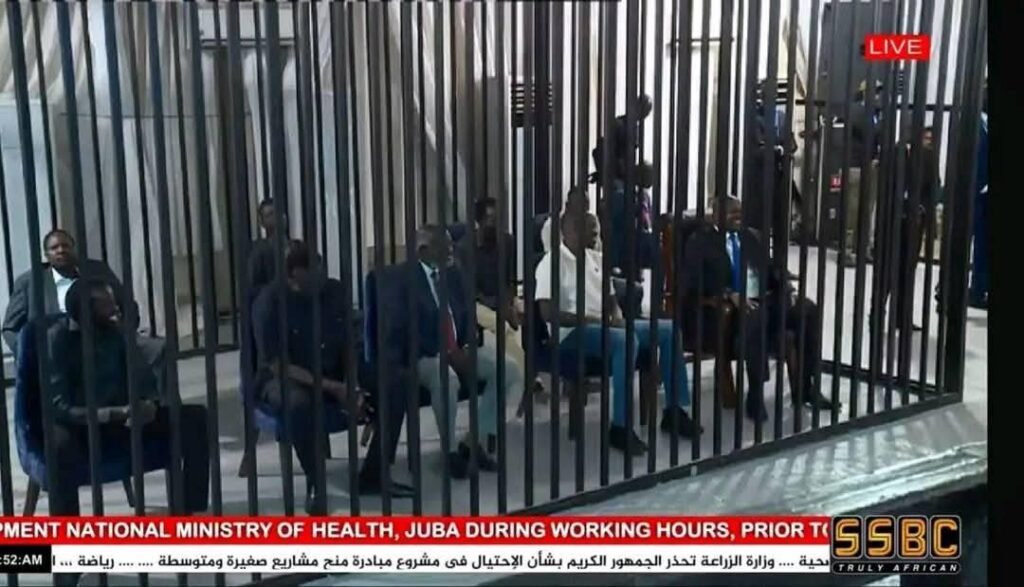Civil society organizations and the Union of Journalists of South Sudan (UJOSS) have jointly condemned restrictions placed on independent media during the opening of the trial of First Vice President Dr. Riek Machar Teny and seven senior SPLM-IO members, which began Monday at a special court in Juba.
In separate but similar statements, the groups expressed concern that private and international media outlets were barred from accessing the proceedings, with only the state-owned South Sudan Broadcasting Corporation (SSBC) permitted to provide coverage.
They also alleged that a civil society activist was assaulted by security personnel at the court premises.
While acknowledging the government’s decision to livestream the trial through SSBC as a step toward transparency, the groups criticized the exclusion of other independent media outlets.
“This is contrary to the gesture of transparency and public interest,” the civil society statement read, stressing that the trial is of significant national and international concern and should therefore be subject to wider media scrutiny.
UJOSS described the move as a direct attack on press freedom and the principles of open justice.
“While we recognize the access granted to SSBC, our members represent diverse media houses and audiences across South Sudan. Restricting access to only one outlet undermines press plurality and transparency,” the union stated.
The journalists’ body further argued that the denial of access contravenes Articles 24 and 32 of the Transitional Constitution of South Sudan (2011, as amended), which guarantee freedom of expression, access to information, and press freedom.
It expressed particular concern that the Ministry of Justice and Constitutional Affairs, the body mandated to uphold the constitution was responsible for facilitating the restriction.
Both civil society organizations and UJOSS called for inclusive and uncensored coverage of all subsequent court sessions.
“We appeal for accredited private media outlets, international press, and civil society actors to be granted unhindered access to the proceedings in the interest of justice and transparency,” the joint demand emphasized.
The trial of Dr. Machar and his co-accused, seven SPLM-IO members, represents a landmark political and legal moment for South Sudan, drawing close attention from the public, civil society, and international observers.
